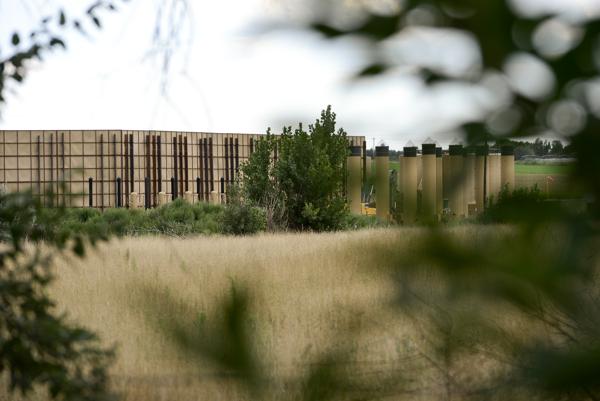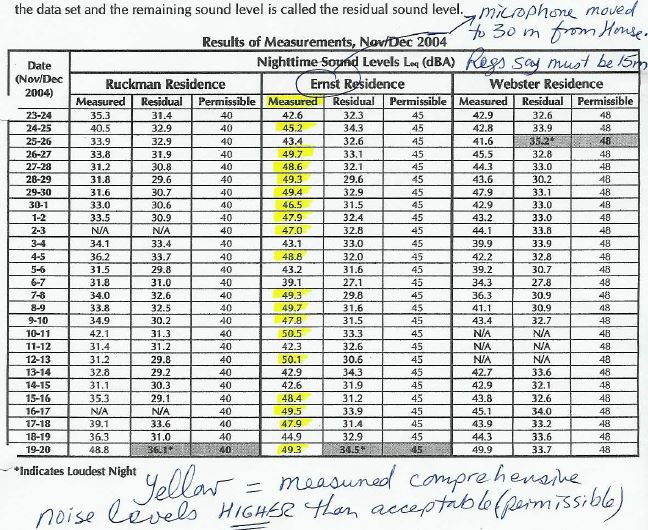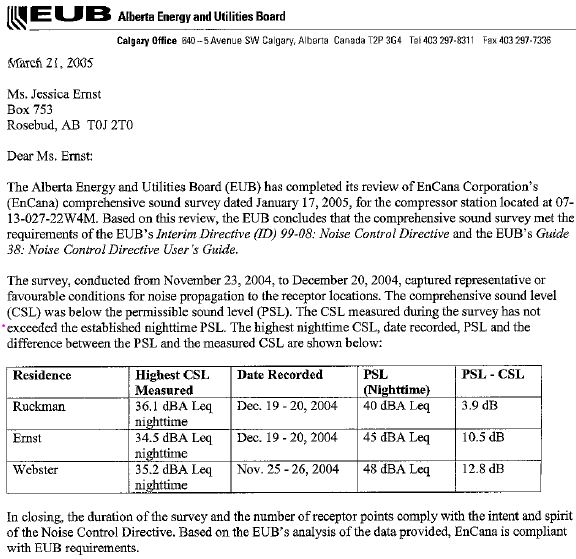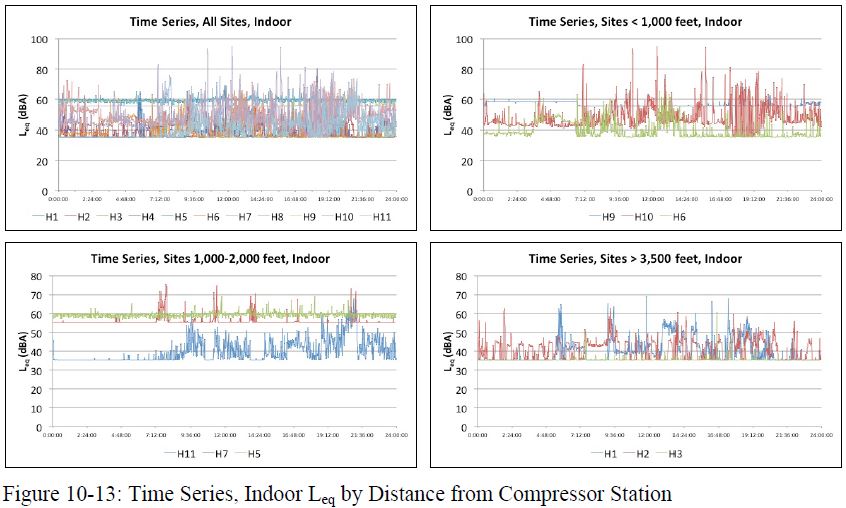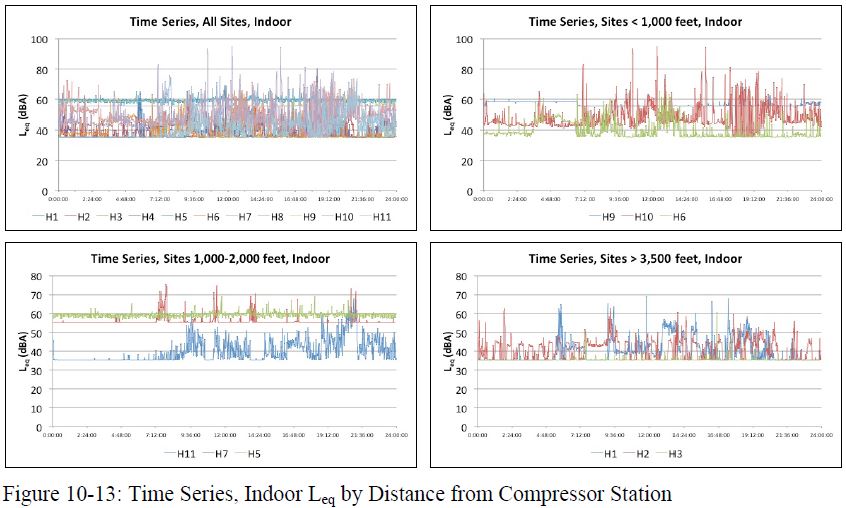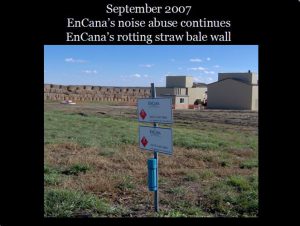 Weld County resident says Encana’s fracking is costing him sleep, When it happens at night, it’s ‘unreal’ by John Fryar, August 16, 2014, Longmont Times-Call
Weld County resident says Encana’s fracking is costing him sleep, When it happens at night, it’s ‘unreal’ by John Fryar, August 16, 2014, Longmont Times-Call
Mike Lozinski says he’s tired of not being able to get enough of the nighttime sleep he needs in order to be to be alert on his daytime job.
The problem, Lozinski said, is that he has frequently been awakened and kept awake by the noise from the drilling and fracking that’s been going on this summer at oil and gas wells near his rural Firestone-area home.
That, in turn, has sometimes threatened his ability to be as alert and rested as he must be in order to carry out his daytime responsibilities as an air traffic controller at the Denver Air Route Traffic Control Center in Longmont.
Lozinski said Friday that his sleep deprivation “has become a safety issue with me” because in his work, “I’m dealing with lives.”
Said Lozinski: “I don’t care if they frack, but they’re affecting my job.”
He said he has had to take several days off because he was either too tired to be sure he could do his traffic control work or had to leave early because he was worried about falling asleep after he got there.
“I’m using up all my leave,” he said.
Lozinski’s home sits on a small acreage at 11755 Weld County Road 15, and he said the southeast corner of the property is only about 325 yards away from the nearest Encana Oil and Gas well.
He said that is one of three nearby wells, including another Encana well site about 600 yards away from his property and an Andarko Petroleum Corporation well that’s about half mile away, where hydraulic fracturing…has been going on since July.
Lozinski said some of those wells “were here already here when I got here” and moved into the home about 15 years ago. He said they apparently were being re-drilled this summer, and the work has included directional and horizontal drilling that ‘s intended to extend tap more deposits than could be accessed by the original wells.
The fracking noise is sporadic, Lozinski said, with the worst noises coming when the oil and gas companies are building up the pressures needed to inject the fluids into the wells and while the fluids are being injected, a process he said can last several hours each time it happens.
“During the day, it’s no big deal,” he said, but when it happens at night, it’s “unreal.”
‘When you’re lying in bed, you can feel it’
Encana spokeswoman Wendy Wiedenbeck said in a Saturday email to the Times-Call that “we’ve had issues getting our decibel levels . . .noise down at this site,” but that “we’ve been working closely with noise control experts to identify and mitigate the noise.”
Said Wiedenbeck: “We anticipate wrapping up this stage” of fracking “by the end of next week.”
Fracking at all three nearby wells reportedly is scheduled to conclude by the end of this month, Lozinski said. But he said he wants the companies to at least cease nighttime fracking now, even if that would mean extending daytime fracking for several more weeks.
He said there’s been “a humming noise that vibrates my house continually while the noise is at its loudest. My house doesn’t move, but when you’re lying in bed, you can feel it.”
Lozinski said, “I cannot get a good night’s sleep. I wake up some days with headaches.” [Does Encana care?]
He said that there have been times he has gone to work “sleepy, with a mild headache” and wound up leaving because of his duty to ensure the safety of the aircraft crews and passengers the control center monitors.
Lozinski said he has met and communicated with Encana representatives about his concerns but that he’s not satisfied with the response he has gotten thus far.
He said Encana offered at one point to pay the costs of temporarily checking Lozinski, his wife Tammy, their son Ryan, who’s a Colorado State University student, and daughter Kari, a Mead High School student, into an area hotel or motel — as well as to cover the costs of their meals while they’re not at home, until the fracking ends. But he said he’s reluctant to leave his home and lawn and garden and the rest of his farmstead — including several goats he has there — unattended.
Encana’s Wiedenbeck wrote in her email that “we work hard to manage the temporary impacts of our active operations, whether through the installation of hay bales and sound walls to address the noise or through offers of temporary housing and a related per diem.” [Encana never offered temporary housing and per diem to Ernst; Encana just offered lots of lies, two falsified noise studies and violating her privacy rights. Does Encana rate Americans the company harms higher than Canadians?]
She said Lozinski “declined this and other offers to offset the impacts,” such as offers to install window air conditioning units at his house and to cover any additional utility costs that the Lozinskis might incur in running that air conditioning.
Lozinski said there also have been discussions of some sort of other forms of Encana compensation for the problems he said he’s been experiencing during the fracking, although he said no agreement has been reached on that score.
Homeowner at the end of his rope
Meanwhile, temporary noise-abatement walls that Encana erected around part of its nearby operation haven’t done enough to reduce that noise, Lozinski said — something he said he has been told the Colorado Oil and Gas Conservation Commission discovered for itself when it measured decibel levels with equipment it recently brought to his front yard. [In Alberta, when Encana violate the Noise Control Directive, the company gets to do their own noise impact studies, and violate the Noise Control Directive during the studies too!]
Lozinski said that an inspector for that state agency told him that he has recommended that the COGCC director Matt Lepore order Encana to do its fracking during daytime hours only. [How many months after the fracing is complete will Lozinksi have to wait for that to happen?]
Lozinski said the inspector told him Friday afternoon that he has written a citation alleging that Encana has been violating the state agency’s maximum noise decibel levels that apply to areas like that in which the Lozinskis’ home sits. [Will the citation, perhaps with a glass of warm milk and honey, help induce sleep?]
Lozinski said he’s been told that the citation is the equivalent of a ticket that Lozinski said could face Encana — if it’s found to have been in violation of those standards — with daily fines dating back to July 28, when Lozinski initially contacted the Oil and Gas Conservation Commission to complain about the noise. [Ernst complained to the Alberta Energy Regulator for years about the noise, the only “inspection” Ernst received was the regulator violating her Charter rights]
Even so, the nighttime fracking, and the noise that came with it, resumed after midnight Friday, Lozinski said on Saturday, and lasted for several hours afterward
“I’m at my rope’s end,” Lozinski said.
Encana’s Wiedenbeck said the company “initially received complaints from multiple areas nearby,” but “at this point complaints have significantly decreased, if not stopped altogether, with one exception.”
As for Lozinski’s concerns about the inability to sleep getting in the way of properly performing his air traffic control duties, Wiedenbeck wrote: “Everyone has a responsibility to perform their work safely. We take that very seriously.” [Does chattering empty promises turn the fracing off?]
Said Wiedenbeck: “We continue to demonstrate a commitment to addressing the temporary impacts of drilling and completions. We believe that is a cost of doing business. It’s the right thing to do.” [What does “demonstrate a commitment to addressing” mean?]
Todd Hartman, the communications director for the Colorado Department of Natural Resources, a department that includes the Colorado Oil and Gas Conservation Commission, could not be reached for comment about Lozinski’s situation and the COGCC ‘s response to Lozinski’s noise complaint.
Noise-abatement walls alongside part of this Encana Oil and Gas facility, where the company has been injecting a pressurized mixture of water, sand and fracking chemicals to free up deep-underground oil and gas deposits, haven’t done enough to reduce the operation’s noise, says Mike Lozinski, whose rural home property sits about 325 yards northeast of the facility alongside Weld County Road 15. (Matthew Jonas / Longmont Times-Call) [Emphasis added]
[Refer also to Encana’s rotting straw bale wall at Rosebud, noise-abatement a la propaganda extraordinaire.
Encana has been violating Ernst’s legal right to quiet enjoyment of her home and land for 11 years, with no relief in sight.
Encana’s noise consultant told Ernst that the compressor noise would impact residents in Rosebud the same with or without the wall. What about a rotting, tumbling down wall?

Encana’s non-compliant comprehensive noise levels at Rosebud, even with Encana’s consultant – Patching Associates Acoustical Engineering Ltd. – secretly re-positioning the study microphone at the Ernst residence to a non-compliant location where the compressor noise was much quieter, without notifying her.
March 21, 2005 letter from Ms. Melinda Dauk, Alberta Energy Regulator (then EUB), misrepresenting the comprehensive noise levels measured to enable Encana’s non-compliant compressor noise to continue.
…
6.2.4 Noise
Environmental noise associated with UNGDP was identified as a top concern among residents of Western Maryland. The literature on UNGDP noise is very limited, however a few studies have shown that at 1,000 to 2,000 feet from a well pad noise levels can be expected to range from 44 dBA to 76 dBA, depending on the phase. Due to a lack of information regarding compressor stations, we conducted a small pilot study in Doddridge County, WV to understand the noise levels associated with living near a compressor station. We found at 1,000-2,000 feet from the compressor station noise levels were 55.78 dBA over a 24-hour period, 52.75 dBA during daytime hours and 51.75 dBA during nighttime hours. While there are not any epidemiologic studies on UNGDP noise, we know from other industries that long-term exposure to environmental noise has been associated with a myriad of health outcomes, including stress and annoyance, sleep disturbances, hypertension, and cardiovascular disease. Noise levels can be reduced by distance, enforcement of regulatory standards, and use of sound reduction technologies.
Based on prior evidence regarding negative impact of noise exposures and noise monitoring
results from UNGDP sites that included our own monitoring results from WV, we conclude that there is a Moderately High Likelihood that UNGDP related changes in noise exposure will have negative impacts on public health in Garrett and Allegany Counties.
…
Adverse health effects from noise are dependent on the duration of exposure and the intensity of the noise. Long-term exposure to A-weighted decibels ranging from 35-75 have been associated with a myriad of health effects, from disruption of sleep and school
performance to hypertension [92]. Children, elderly, chronically ill, and hearing impaired
individuals have been found to be more susceptible to environmental noise [93]. While increased noise levels are associated with both the UNG-Development and the UNG-Production phase, exposures associated with the UNG-Development phase are temporary as the development activity ceases to exist once the wells are constructed. The noise associated with the production phase, on the other hand, is permanent. …
… Nighttime noise levels as low as 35 dBA have been found to cause sleep disruption [92]. [Emphasis added]
Above from Potential Public Health Impacts of Natural Gas Development and Production in the Marcellus Shale in Western Maryland July 2014, by Maryland Institute for Applied Environmental Health, School of Public Health, University of Maryland

